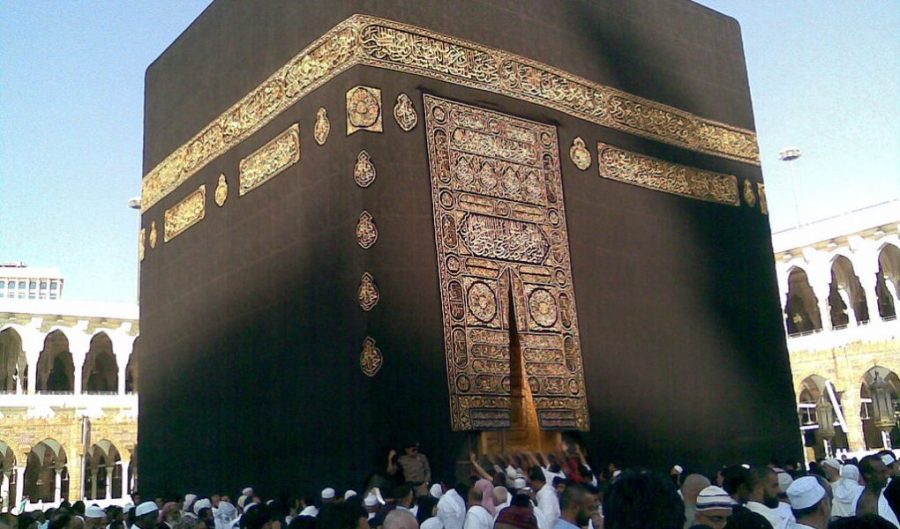Uganda plans to send 750 of its citizens – including 415 women – to this year’s Hajj pilgrimage in Mecca.
“I can’t wait to get to Mecca and see Prophet Muhammad’s tomb and Mount Arafat and drink Zamzam water,” said 58-year-old Kasifah Nankumba.
The sheikhs have briefed us on what to expect. I’m so excited. I’m afraid I might faint.
For the last decade, Kasifah has been saving small increments of money from her modest smoked fish business, which she has run for the last 28 years in Kalerwe market near Kampala.
In 2006, Kasifah recalled, while sitting in the market, she suddenly felt compelled to perform the pilgrimage.
“But, I didn’t have a penny to my name, so I pushed the thought aside,” she said.

Photo (C) AP
Nevertheless, shortly afterward, she got in touch with a man known for helping Muslim pilgrims travel to Mecca.
The man, known as Haji Musa, introduced her to the manager of the Mityana Hijja and Umrah Tour Agency, who advised her to start saving.
With her modest savings, they began buying US dollars for her, for which they provided her with receipts.
From 2007 to 2009, she recalls, “I managed to save small amounts of about $4 to $5 each”.
In 2009, she heard of a man who sponsored Hajj pilgrims and immediately began looking for him.
Two days later, she was knocking on Hajji Kajumbi’s door.
I explained my dilemma to this stranger, but, unfortunately, he couldn’t help me.
With her dollar receipts in her bag, she showed him what she had managed to save over the last three years.
“He prayed for me and said I should start saving more, telling me to give the tour agency amounts of between $100 and $200,” she said.
From then on, she began making payments every four or five months.
On June 15, 2015, she remembers getting a call from the Hijja office manager, who told her: “Hajjati Kasifah, the money you saved is now enough for Hajj (pilgrimage).”
“I was at the market at the time, sitting on the ground,” Kasifah said. “He said my name four times, but I was too shocked to speak.”
Now rejoicing with joy at the Wandegeya Masjid, where she attended a final travel briefing, she declared: “When I return from Mecca, Insha Allah, I’ll continue with my Ibadah; I’m not coming back to just sit on the ground and sell fish.”
When it comes to Hajj, Ugandan pilgrims often have it tough, much like pilgrims from most other African countries of the region. On one hand, nearly all the expenses need to be covered in US Dollars rather than the national currency, and this results in pilgrims losing a big fraction of their savings for transaction/conversion fee.
Uganda’s current lack of a national air carrier is also a challenge. Since there is no national airline that serves Hajj pilgrims, negotiations have to be made with foreign airlines, and that takes the prices even higher.
Back in the day, nearly 6000 Ugandan pilgrims used to perform Hajj every year. Now, Saudi Arabia has reduced the allocated slot for Ugandan nationals to a maximum of 1200, so the number has come down. Last year, Ugandan pilgrims paid $2,178 (for the pilgrimage); this year the amount rose to $4,150 per person.
Anadolu Agency | Photo by Hajj1433
